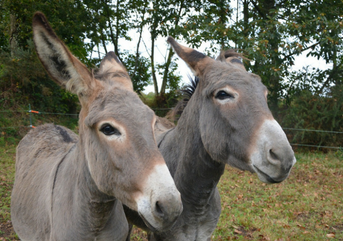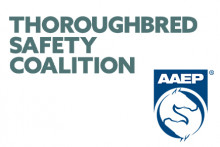AAEP Denounces Inhumane Treatment of Donkeys Caused by Skin Trade

The American Association of Equine Practitioners joins international equine welfare organizations in condemning the inhumane transport and killing of donkeys to satisfy the escalating global trade in donkey skins. It is estimated that a minimum of 1.8 million donkey skins are traded each year to create a substance known as ejaio, which is used in Chinese beauty products and traditional medicines.
In addition to welfare concerns for the animals’ treatment, this issue is especially devastating in developing countries where donkeys are essential to the livelihoods of millions of the world’s poorest people. Families lose their income overnight because of donkey theft. The loss of a donkey also jeopardizes the transport of children to school and limits the growth of women in community-related roles.
“As reported in many countries, the trade in donkey skins has created tremendous suffering for both the animals and the humans affected by their loss,” said Dr. Margo Macpherson, AAEP’s 2018 president.
The AAEP supports the ongoing work of equine welfare organizations to end the inhumane treatment of donkeys affected by the trade in skins and is committed to creating awareness of this issue within the veterinary community in North America.
To learn more about the emerging trade in donkey skins and its implications for donkey welfare, read The Donkey Sanctuary’s 2017 report “Under the Skin.”
Please contact Sally Baker, AAEP director of marketing and public relations, at sbaker@aaep.org or (859) 233-0147 for more information about the AAEP’s position.
The American Association of Equine Practitioners, headquartered in Lexington, Ky., was founded in 1954 as a non-profit organization dedicated to the health and welfare of the horse. Currently, AAEP reaches more than 5 million horse owners through its over 9,000 members worldwide and is actively involved in ethics issues, practice management, research and continuing education in the equine veterinary profession and horse industry.
# # #
